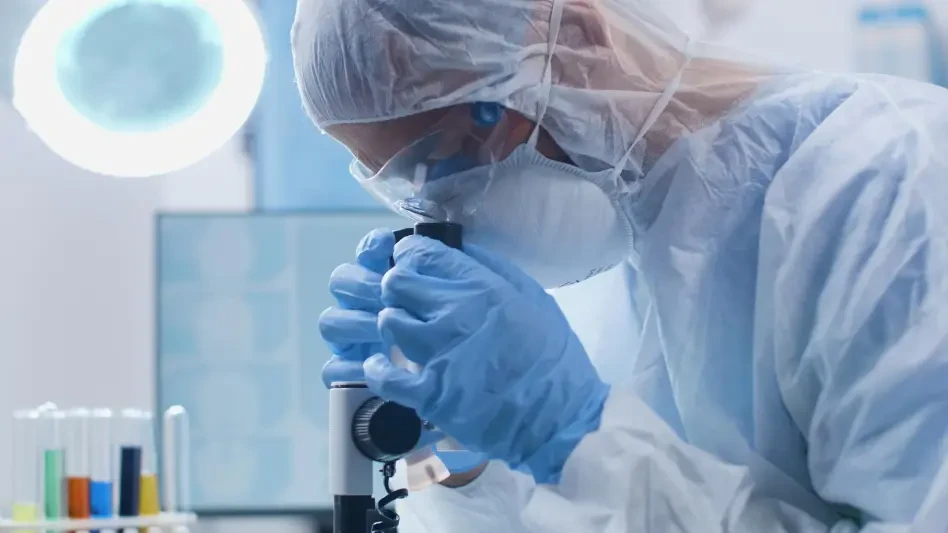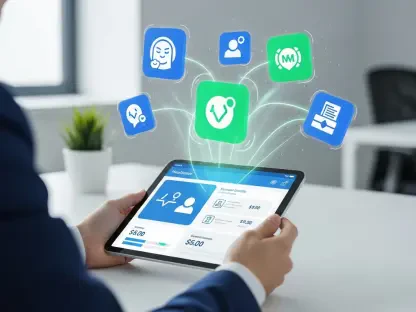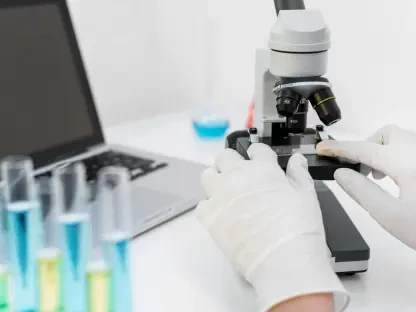I’m thrilled to sit down with Faisal Zain, a seasoned healthcare expert with a deep focus on medical technology. With years of experience in the manufacturing of medical devices for diagnostics and treatment, Faisal has a unique perspective on innovation in the biopharmaceutical industry. Today, we’re diving into the recent $9 billion acquisition of Clario by Thermo Fisher Scientific, exploring how this move shapes the landscape of clinical trial technology, enhances biopharma services, and positions Thermo Fisher as a leader in the field. We’ll touch on the strategic fit of Clario’s offerings, the financial implications, and the broader impact on drug development processes.
Can you walk us through the strategic motivations behind Thermo Fisher’s $9 billion acquisition of Clario?
Absolutely. Thermo Fisher is already a powerhouse in biopharma services, and acquiring Clario is a calculated step to bolster their technological edge. Clario brings a specialized platform for managing clinical trial data, which is a critical piece of the drug development puzzle. This acquisition allows Thermo Fisher to offer a more integrated solution, combining their existing services with advanced data analytics. It’s about filling a gap in their portfolio—moving beyond traditional contract research and manufacturing to provide end-to-end data solutions that can influence R&D decisions, regulatory strategies, and even pricing models.
How does Clario’s technology complement Thermo Fisher’s current offerings in the biopharma space?
Clario’s expertise lies in handling clinical trial endpoint data, which is essentially the outcomes or results that determine a trial’s success. Their platform pulls together data from various sources—devices, trial sites, and patients—during both development and post-market phases. This fits seamlessly with Thermo Fisher’s existing strengths through PPD, their contract research organization, and Patheon, their manufacturing arm. By integrating Clario’s tech, Thermo Fisher can offer a more holistic service, where data analysis directly informs trial design and execution, making them a one-stop shop for biopharma companies.
What role does endpoint data play in the broader context of drug development, and why is it so crucial?
Endpoint data is the backbone of drug development. It’s the measurable outcomes—like whether a drug reduces symptoms or extends survival—that tell us if a treatment works. During development, this data guides whether a company should push forward or pivot their research. Post-market, it’s vital for proving a drug’s real-world effectiveness to regulators and payers. Clario’s ability to aggregate and analyze this data efficiently means faster, more informed decisions, which can shave months off timelines and ensure better outcomes for patients and stakeholders alike.
Clario has a history stretching back to the 1970s. How does this long-standing expertise benefit Thermo Fisher’s ambitions?
Clario’s decades of experience in clinical trial data management bring a level of maturity and reliability that’s hard to replicate. Since the 1970s, they’ve evolved through various mergers and technological shifts, building a robust understanding of trial complexities. For Thermo Fisher, this heritage translates into proven methodologies and trust from the industry. It’s not just about acquiring tech; it’s about inheriting a legacy of problem-solving in a field where precision and credibility are everything.
With Clario’s track record of supporting over 700 regulatory approvals, how does this enhance Thermo Fisher’s standing in the industry?
That number—over 700 regulatory approvals—is a testament to Clario’s impact. It shows they’ve been a trusted partner in getting drugs to market, which is a huge credibility boost for Thermo Fisher. When biopharma companies see that track record, it signals that Thermo Fisher isn’t just a service provider but a partner with a deep understanding of what it takes to navigate regulatory hurdles. This can attract more clients and solidify their reputation as a leader in the space.
How do you see Clario integrating with Thermo Fisher’s existing businesses like PPD and Patheon?
Clario’s integration with PPD, Thermo Fisher’s contract research organization, seems like a natural fit. PPD handles a lot of trial execution, and Clario’s data platform can enhance how they design and analyze studies, making the process more efficient. With Patheon, which focuses on manufacturing, the synergy might be less direct but still significant—think about using endpoint data to inform production scales or post-market adjustments. It’s about creating a feedback loop where data from Clario informs every stage of Thermo Fisher’s service chain.
Some industry analysts have described this acquisition as a ‘home run.’ What’s your perspective on that assessment?
I think the term ‘home run’ captures the potential here. This deal positions Thermo Fisher as a standout choice for biopharma companies looking for comprehensive solutions. Clario’s endpoint data capabilities give them an edge over other CROs that might not have such advanced tech in-house. It’s a competitive differentiator—offering not just services but actionable insights. If they can leverage their existing relationships to cross-sell Clario’s tools, as analysts suggest, it could significantly strengthen their market position.
Can you break down the financial aspects of this deal and what they mean for Thermo Fisher’s future?
The financial structure of the deal is quite telling. Thermo Fisher is paying $8.875 billion in cash at closing, funded through debt and cash reserves, which shows confidence in their balance sheet. There’s also a $125 million payment in 2027, plus up to $400 million tied to performance milestones in 2026 and 2027. This setup suggests they’re betting on Clario’s growth and ability to hit key targets. With Clario projecting $1.25 billion in revenue for 2025, this acquisition could meaningfully boost Thermo Fisher’s financial outlook, especially in their largest segment, Laboratory Products and Biopharma Services.
What is your forecast for the impact of this acquisition on the future of clinical trial technology?
I see this acquisition as a catalyst for accelerating innovation in clinical trial technology. Thermo Fisher combining with Clario could set a new standard for how data is used in trials, pushing the industry toward more integrated, real-time analytics. We might see faster trial timelines and more precise drug development as endpoint data becomes a central decision-making tool. It could also spark similar moves by competitors, driving a wave of consolidation or investment in tech-focused solutions. The next few years will likely show us just how transformative this partnership can be.









